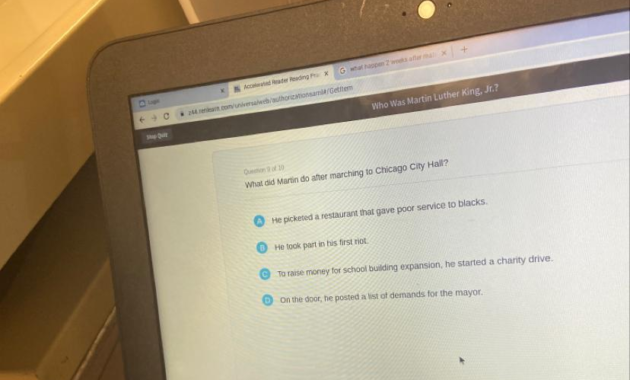AR Mindfulness Apps for Stress Relief have emerged as innovative solutions to combat the growing issue of stress in our fast-paced world. By leveraging augmented reality technology, these applications create immersive environments that facilitate mindfulness practices, enabling users to engage more deeply with relaxation techniques. This technology not only enhances the user experience but also promotes a more profound understanding of mindfulness, making it accessible to a broader audience.
The integration of AR into mindfulness practices allows users to visualize and interact with calming scenes, guiding them through exercises that can reduce anxiety and improve overall well-being. As more people seek effective ways to manage stress, AR mindfulness apps present a promising avenue for achieving mental clarity and tranquility.
The concept of sustainability has become increasingly important in recent years, prompting a shift in how individuals, businesses, and governments approach resource management and environmental stewardship. Sustainability, at its core, refers to the ability to meet the needs of the present without compromising the ability of future generations to meet their own needs. This broad definition encompasses various dimensions, including environmental, economic, and social aspects, often referred to as the three pillars of sustainability.Environmental sustainability focuses on the preservation of natural resources and ecosystems.
It involves practices that reduce pollution, conserve biodiversity, and promote the responsible use of natural resources. This dimension is vital because the degradation of the environment can lead to severe consequences, including climate change, loss of biodiversity, and depletion of essential resources like water and arable land. According to the United Nations, climate change, driven primarily by human activities, poses one of the most significant challenges to sustainable development.

The Intergovernmental Panel on Climate Change (IPCC) has warned that without substantial reductions in greenhouse gas emissions, the impacts of climate change will not only be severe but could also become irreversible.Economic sustainability, on the other hand, emphasizes the necessity for economic growth and development to occur in a manner that is sustainable over the long term. It requires a balance between maintaining economic stability and ensuring that resources are used efficiently and responsibly.
Practices such as sustainable business models, green technology, and circular economy principles are integral to this dimension. For instance, the circular economy promotes the idea of reusing and recycling materials to minimize waste and reduce the consumption of new resources. Businesses that adopt such practices can not only enhance their profitability but also minimize their environmental impact, demonstrating that economic growth does not have to come at the expense of environmental health.Social sustainability is equally critical, as it addresses the societal dimensions of sustainability, including equity, social justice, and community development.
It involves ensuring that all individuals have access to basic needs, such as healthcare, education, and employment opportunities. Social sustainability also encompasses the promotion of human rights and the enhancement of community well-being. A society that prioritizes social sustainability is one that recognizes the importance of inclusivity, diversity, and the empowerment of marginalized groups. Research indicates that social inequalities can hinder sustainable development, as they often lead to social unrest and economic instability.The interplay between these three pillars of sustainability is complex and multifaceted.
Achieving true sustainability requires a holistic approach that considers the interdependencies among the environmental, economic, and social dimensions. For instance, policies aimed at reducing carbon emissions must also take into account their potential economic impacts, particularly on vulnerable populations who may bear the brunt of energy transitions. Similarly, social programs designed to alleviate poverty should be integrated with environmental policies to ensure that efforts to protect the environment do not inadvertently exacerbate social inequalities.One of the most significant frameworks guiding global sustainability efforts is the United Nations Sustainable Development Goals (SDGs), established in 2015.
The 17 goals set a universal agenda to address pressing global challenges, including poverty, inequality, climate change, environmental degradation, peace, and justice. The SDGs serve as a blueprint for governments, businesses, and civil society to align their strategies and actions towards a more sustainable future. Each goal has specific targets and indicators to measure progress, emphasizing the interconnected nature of the goals.
For example, the goal to achieve gender equality (Goal 5) is intrinsically linked to efforts to promote quality education (Goal 4) and reduce poverty (Goal 1).Many countries and organizations have embraced the SDGs as a catalyst for change, integrating them into their policies, programs, and business practices. However, despite the progress made, challenges remain in achieving the ambitious targets set forth in the SDGs.
Issues such as political instability, economic disparities, and the ongoing impacts of the COVID-19 pandemic have highlighted the need for resilient strategies that can adapt to changing circumstances. Moreover, public awareness and engagement play a crucial role in advancing sustainability initiatives. Increased awareness of environmental issues, such as climate change and plastic pollution, has spurred grassroots movements and global campaigns advocating for change.
Initiatives such as the Fridays for Future movement, inspired by climate activist Greta Thunberg, have mobilized millions of young people worldwide to demand action from governments and businesses. Social media platforms have amplified these voices, enabling individuals to connect and collaborate across borders in pursuit of common sustainability goals.Businesses, too, are recognizing the importance of sustainability in their operations. The rise of corporate social responsibility (CSR) and environmental, social, and governance (ESG) criteria has led many companies to adopt more sustainable practices.
Investors are increasingly considering ESG factors in their decision-making processes, signaling a shift towards responsible investment. The financial sector has responded by developing sustainable finance products, such as green bonds, which fund projects that have positive environmental impacts. Education also plays a pivotal role in fostering a culture of sustainability. Educational institutions are integrating sustainability into their curricula, equipping students with the knowledge and skills needed to address complex environmental and social challenges.
Higher education institutions have launched research initiatives focused on sustainability, contributing to the development of innovative solutions to global problems. Furthermore, community education programs are empowering individuals at the grassroots level to make informed decisions about their consumption patterns and lifestyle choices.Despite the progress made, the path to a sustainable future remains fraught with challenges. The urgency of the climate crisis necessitates immediate and coordinated action across all sectors of society.
Policymakers must prioritize sustainability in their agendas, harnessing the collective power of governments, businesses, and communities to implement effective solutions. This includes transitioning to renewable energy sources, investing in sustainable transportation infrastructure, and promoting sustainable agriculture practices.In conclusion, sustainability is a multifaceted concept that encompasses environmental, economic, and social dimensions. Achieving true sustainability requires a holistic approach that recognizes the interdependencies among these dimensions.
The United Nations Sustainable Development Goals provide a comprehensive framework for addressing the world’s most pressing challenges and guiding global efforts towards a more sustainable future. As individuals, businesses, and governments work together to advance sustainability initiatives, it is essential to foster awareness, promote education, and support inclusive policies that ensure a just and equitable transition for all. The choices made today will shape the world for generations to come, underscoring the importance of prioritizing sustainability in all aspects of life.











